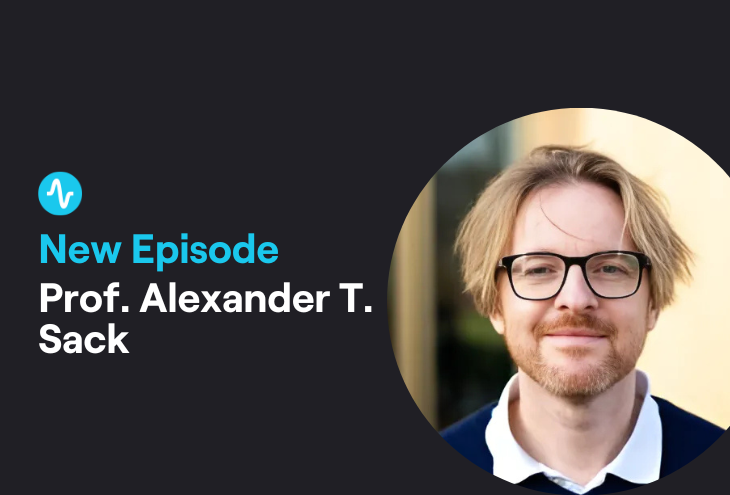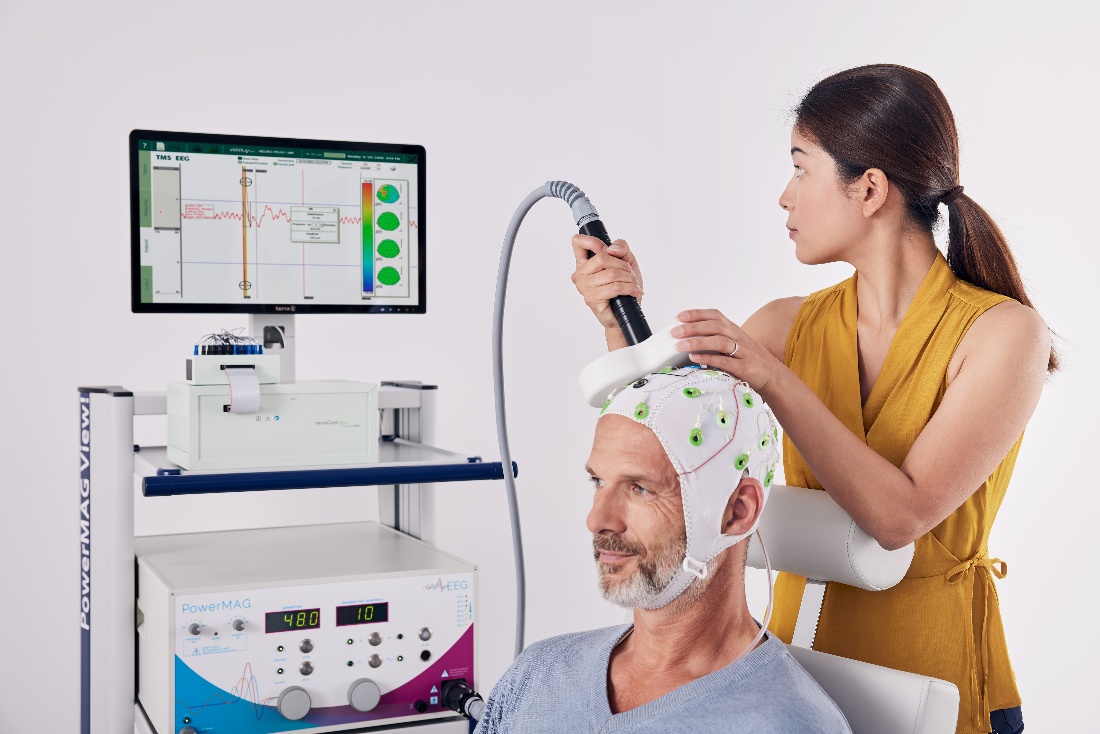Optimizing TMS: How Brain State and Timing Impact Treatment Outcomes with Prof. Alexander T. Sack
February 11, 2025 - neurocare group

Transcranial Magnetic Stimulation (TMS) is a widely used, non-invasive brain stimulation technique, particularly effective for treatment-resistant depression. While much of the research to date has focused on the spatial targeting of TMS, new findings are highlighting the importance of brain state and timing in improving clinical outcomes.
In a recent interview, neurocare’s Dr. Trevor Brown spoke with Prof. Alexander T. Sack, Professor of Cognitive Neuroscience at Maastricht University, about advancements in TMS research. Prof. Sack’s work explores how understanding brain state and neural rhythms can refine TMS applications for better therapeutic results.
If you are interested to learn more about the role of brain state and timing in TMS treatment, watch the full interview with Prof. Alexander T. Sack and neurocare's Dr Trevor Brown and subscribe to the neurocare YouTube channel.
The Role of Brain State in TMS for Depression
Research shows that a patient’s brain state during TMS significantly impacts its efficacy. Prof. Sack explains that the brain’s functional connectivity fluctuates throughout the day, influenced by factors like alertness, fatigue, and cognitive engagement. These dynamic brain states can either enhance or hinder the effects of TMS.
To address this variability, some researchers are exploring ways to keep patients’ brains consistently active during TMS sessions. For example, introducing cognitive or emotional regulation tasks during treatment may help align brain activity with therapeutic goals. Preliminary trials are underway to determine the impact of these methods on clinical outcomes.

EEG Guided Personalization of TMS Treatment
Another promising development in TMS research is the integration of EEG to optimize timing. Unlike traditional approaches that rely on general protocols, EEG can provide real-time information about a patient’s brain rhythms, such as alpha oscillations. Prof. Sack’s work focuses on synchronizing TMS pulses with the optimal phase of these rhythms, a method called 'oscillatory state-dependent TMS.'
By tailoring stimulation to a patient’s unique neural activity, this approach aims to improve the precision and effectiveness of TMS. Early findings suggest that EEG-guided personalization could reduce variability in treatment outcomes and increase response rates.
Practical Considerations for Clinicians Treating with TMS
While state-dependent TMS and closed-loop EEG systems represent the future of personalized neuromodulation, there are practical steps clinicians can take today to optimize treatment:
- Maintain an Active Brain State: Encourage patients to stay engaged during TMS sessions. Avoid passive activities like watching TV or dozing off, which may reduce the treatment’s effectiveness.
- Standardize Pre-Treatment Conditions: Minimize variability by addressing factors like sleep quality, caffeine intake, and medication adherence before treatment.
- Explore Cognitive Tasks During TMS: Emerging evidence suggests that combining TMS with specific tasks, such as emotional regulation exercises, may enhance outcomes.
Future Directions of Personalized TMS Treatment
The field of TMS is at a critical juncture. While spatial targeting through neuroimaging remains important, researchers are increasingly focusing on temporal dynamics and brain state optimization. Prof. Sack emphasizes the need to balance technological advancements with practical accessibility to ensure that these innovations can benefit a wide range of patients.
To learn more about Prof. Sack’s research on brain state, oscillatory rhythms, and state-dependent TMS, watch the full interview with neurocare’s Dr. Trevor Brown on our YouTube channel.
About the series
neurocare brings the world of neuroscience into clinical practice. We educate professionals worldwide in the correct use of TMS, tDCS, Neurofeedback and other emerging techniques, and share the latest knowledge and updates as well as the history of these digital therapeutics. Neuroscientist Dr Trevor Brown, who features on neurocare’s Learning Management System, an online training platform, connects with leading researchers each month as part of a new interview series to discuss present and future clinical applications of neurostimulation techniques (e.g. TMS, tDCS) as well as exploring the use of EEG and Neurofeedback in clinical and research settings.





